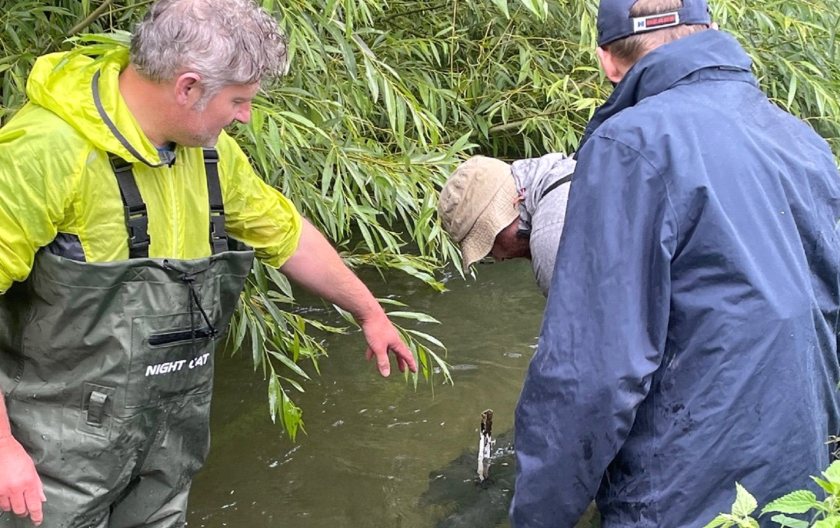
A farmer co-operative has joined forces with researchers to help improve river health across England, while delivering other environmental outcomes.
The Environmental Farmers Group's (EFG) new collaboration with Rothamsted Research will be rolled out in tributaries across England.
On-farm water-testing labs will be established in the Hampshire Avon, Dorset Stour and the Test and Itchen catchments.
The partnership has already helped EFG farmers in the Wylye catchment in Wiltshire to design a farmer-led, water quality monitoring scheme, which will help them reduce farm pollution in the river.
As well as standard sampling for nutrients, farmers on the Wylye are using a pioneering low-cost colour analysis of sediment in the river.
Samples are tested in the first on-farm lab, sited in a disused farm building, which was originally set up with grants from the Fishmongers’ Company, Codford Biogas and FiPL.
The sediment can then be traced back to specific areas and inform management options to improve water quality.
Rothamsted has secured funding to develop an additional eight labs in neighbouring catchments over the next four years.
Prof Adie Collins, from Rothamsted, said: "We discover as much from working with farmers as we do on the campus, that’s the joyous thing about EFG.
"I look forward to spreading this support on water quality testing and environmental baseline assessments to other EFG groups across the country.
"This number of farmers working together in a coordinated way has the capacity to make a real difference.”
The bottom-up approach to the water testing initiative is seen as the key to its success, according to Rothamsted.
By taking ownership of collecting and managing the data, it says farmers can avoid being wrongly blamed for pollution incidents and better understand how they can adapt their own operations to improve water quality.
EFG board member Tim Palmer, who helped establish the first on-farm lab on the Wylye, said having oversight from Rothamsted would ensure the scientific credibility of the data.
He added: "The assumption is often made that agriculture is to blame for the vast majority of pollution, but in many cases there are other factors at play such as domestic sceptic tanks or water companies discharging waste.
"That’s why, as the regulatory framework is ratcheted up, it’s essential to have the data to accurately identify the root of the problem.
"And it’s not just about testing, it’s about putting the tools in the farmers hands, so they can set the targets, challenge themselves and tackle the problems at source.”
The EFG is a farmer-owned environmental co-op designed to help farmers access private sector funding for restoring biodiversity loss and moving to net carbon zero farming by 2040.
